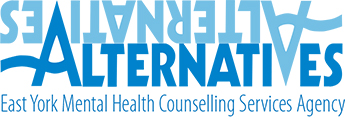Project Description
Defined as a deeply personal, unique process of changing one’s attitudes, values , feelings, goals, skills and/ or roles. It is a way of living a satisfying, hopeful, and contributing life even with limitations caused by the mental health challenge. Recovery involves the development of new meaning and purpose in ones life as one grows beyond the catastrophic effects of Mental Illness.
Ultimately, because recovery is a personal and unique journey, everyone has their own definition. However, certain concepts are common. These include:
- Hope – Having a sense of hope is the foundation for ongoing recovery. Even the smallest belief that we can get better, as other have, can fuel the recovery process. It is also possible for others to carry hope for us, but at some point, you must develop and internalize your own sense of hope
- Medication/Treatment – Medications, professionals, treatment programs and community organizations many all be valuable parts to recovery. Especially when consumers feel they have a choice and are engaged in a respectful partnership with their providers and are involved in all treatment planning.
- Empowerment – is the belief that one has power and control in their life. It also involved taking responsibility for self and advocating for self and others.
- Support – Support from peers, family, friends and professionals is essential to recovery. It is especially beneficial to have multiple sources of support. This not only reduces a sense of isolation, but also increases activity in the community, allowing an integral role in society.
- Education/Knowledge – In order to maximize recovery, its important to learn as much as possible about your specific condition, medications, best treatment practices and available resources. It’s also important to learn about ourselves, including our symptoms so that we can gain better control. Consumers can educate themselves by speaking with health care workers, attending workshops and support groups, reading books, articles and newsletters, browsing the internet and participating in discussion groups
- Self-help – Self help can take many forms including learning to identify symptoms and take actions to counteract them, reading and learning about a specific condition and treatment, learning and applying coping skills, attending support groups and developing a support system to rely on when necessary.
- Spirituality – for many, spirituality may provide hope, solace, peace, understanding and a source of social support.
- Employment/Meaningful Activity – What a person does influences his/her confidence, esteem, social role, values, etc. it affords more the opportunity to regain a positive identity, including a sense of purpose and value.

